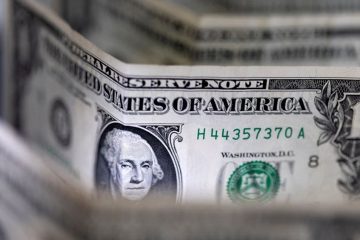| Symbol | Last | Change | % | High | Low |
|---|---|---|---|---|---|
| AUD / NZD | 1.1953 | +0.0014 | +0.12% | 1.1965 | 1.1930 |
| Open Last Trade : 00:00 | GMT Time : Wed Mar 04 2026 00:00 | ||||
AUD/NZD : Intraday Live Chart
AUD/NZD : Technical Signal Buy & Sell
| 5 Min Signal | 1 Hour Signal | 1 Day Signal |
|---|---|---|
| Sell | Buy | Sell |
AUD/NZD : Moving Averages
| Period | MA 20 | MA 50 | MA 100 |
|---|---|---|---|
| 5 Minutes | 1.19 | 1.19 | 1.19 |
| 1 Hour | 1.19 | 1.19 | 1.19 |
| 1 Day | 1.12 | 1.15 | 1.15 |
| 1 Week | 1.10 | 1.10 | 1.09 |
AUD/NZD : Technical Resistance Level
| Resistance 1 - R1 | Resistance 2 - R2 | Resistance 3 - r3 |
|---|---|---|
| 1.1967 | 1.1985 | 1.2002 |
AUD/NZD : Technical Support Level
| Support 1 - S1 | Support 2 - S2 | Support 3 - S3 |
|---|---|---|
| 1.1932 | 1.1915 | 1.1897 |
AUD/NZD : Periodical High, Low & Average
| Period | High Change from Last | Low Change from Last | Average Change from Last |
|---|---|---|---|
| 1 Week | 1.1965 -0.0012 | 0.0000 +1.1953 | 1.0191 +0.1762 |
| 1 Month | 1.1965 -0.0012 | 0.0000 +1.1953 | 1.1354 +0.0599 |
| 3 Month | 1.1965 -0.0012 | 0.0000 +1.1953 | 1.1489 +0.0464 |
| 6 Month | 1.1965 -0.0012 | 0.0000 +1.1953 | 1.1424 +0.0529 |
| 1 Year | 1.1965 -0.0012 | 0.0000 +1.1953 | 1.1160 +0.0793 |
AUD/NZD : Historical Chart
AUD to NZD Exchange Rate History: Two Commodities, One Competitive Edge
The AUD to NZD exchange rate showcases the close but competitive economic relationship between Australia and New Zealand. Both countries rely heavily on commodities, agriculture, and trade with Asia-Pacific partners, but monetary policy divergence, relative GDP growth, and inflation dynamics have caused frequent shifts in this tightly correlated pair.
1990s: Peg-Free Floating and Early Volatility
After both countries moved to freely floating exchange rates in the 1980s:
The AUD/NZD traded with relatively high volatility in the 1.05 to 1.30 range.
The Reserve Bank of Australia (RBA) and the Reserve Bank of New Zealand (RBNZ) both targeted inflation but faced different fiscal landscapes.
Australia’s economy was larger and more diversified, while New Zealand relied more on agricultural exports and experienced a tough transition to neoliberal reforms.
2000–2008: Kiwi Strength Peaks
New Zealand outperformed expectations in the early 2000s.
RBNZ hiked interest rates faster and higher than the RBA, making the NZD more attractive for yield-seeking investors.
AUD/NZD fell to a record low of ~1.04 in 2005, with some brief dips even below parity.
However, Australia’s China-driven mining boom helped AUD regain some ground by 2007.
2008–2013: Global Crisis and Australian Resilience
The 2008 financial crisis hit both economies, but:
Australia weathered the storm better due to its strong banking sector and continued Chinese demand for commodities.
AUD/NZD climbed back toward 1.25 by 2011 as the RBA kept rates higher for longer than the RBNZ.
This period cemented Australia’s position as the stronger post-crisis performer.
2014–2019: RBNZ Cuts Deep
From 2014 to 2019:
The RBNZ aggressively cut interest rates to combat low inflation and weak dairy prices.
AUD/NZD rose to near 1.13–1.15, despite Australia also experiencing sluggish wage growth and cutting rates.
The pair remained range-bound due to the high correlation between both economies.
2020–2024: COVID-19 Divergence and Policy Flip
The pandemic caused both countries to:
Implement aggressive fiscal and monetary responses.
Cut interest rates to record lows.
But the aftermath differed:
The RBNZ hiked rates faster and more aggressively in 2021–2022 to tackle inflation.
AUD/NZD dropped sharply, reaching ~1.03 in 2022, as New Zealand led the region in normalization.
By 2023–2024, the RBA caught up, and recession fears hit New Zealand harder due to property market corrections and migration trends, bringing AUD/NZD back up near 1.08.
As of April 2025, AUD/NZD trades around 1.09, as both central banks adopt a cautious stance. Market watchers anticipate a sideways range unless either country surprises with fresh stimulus or growth shocks.
✅ Key
🟢 = AUD appreciated vs NZD
❌ = AUD depreciated vs NZD
⚠️ = Mixed / Range-bound
📊 AUD to NZD Exchange Rate by Decade
| Decade | Avg. AUD/NZD Rate (Approx) | Change vs. Previous Decade | Key Events |
|---|---|---|---|
| 1990s | 1.10 – 1.30 | ⚠️ Range-bound | Post-float volatility, reform era |
| 2000s | 1.06 → 1.28 | ❌ then 🟢 Recovery | Kiwi boom, then mining-led AUD rebound |
| 2010s | 1.05 – 1.15 | ⚠️ Tight range | Low inflation, synchronized cuts |
| 2020s (till 2025) | 1.03 → 1.09 | ❌ then 🟢 | Pandemic divergence, NZ leads rate hikes, then slows |
The AUD/NZD remains one of the most stable yet competitive currency pairs in the FX market. Though parity was nearly reached in 2022, the long-term average continues to hover between 1.05 and 1.15, reflecting deep economic alignment and subtle monetary policy shifts.
AUD/NZD - Australian Dollar / New Zealand Dollar Currency Rate
Live Price of AUD/NZD. AUD/NZD Live Chart, Intraday & Historical Live Chart, Buy Sell Signal, AUD/NZD News, AUD/NZD Averages, Returns & Historical Data
» AUD/NZD
» AUD/NZD Real Time Quotes
» AUD/NZD Live Chart
» AUD/NZD Intraday Chart
» AUD/NZD Historical Chart
» AUD/NZD Buy Sell Signal
» AUD/NZD News
» AUD/NZD Videos
» AUD/NZD Averages
» AUD/NZD Currency Pair
» AUD/NZD Historical Data








